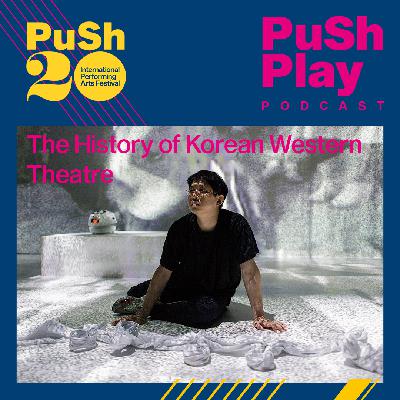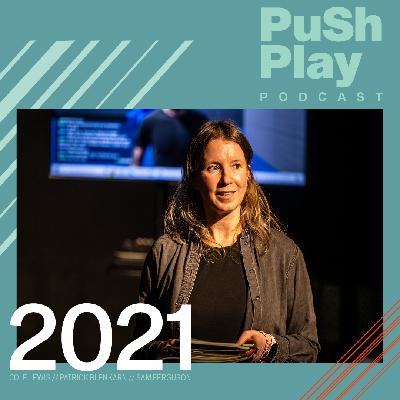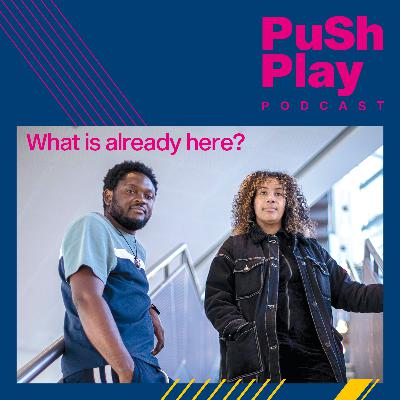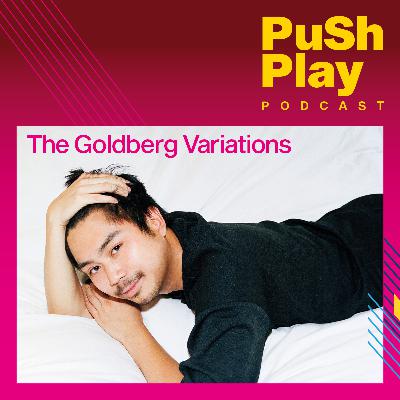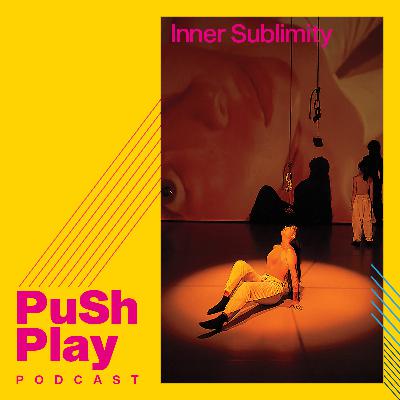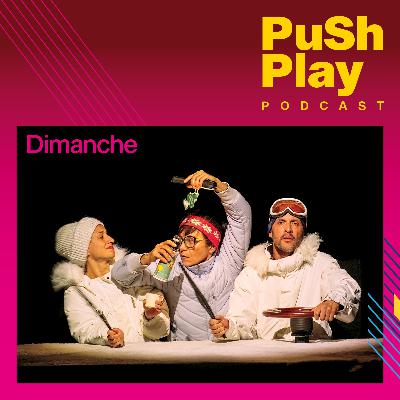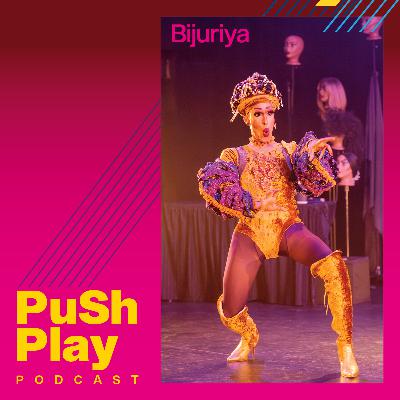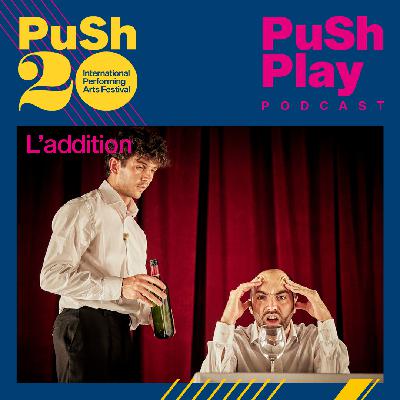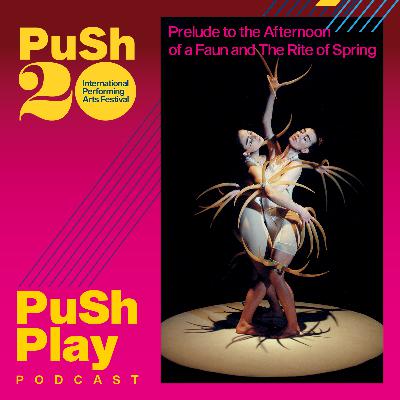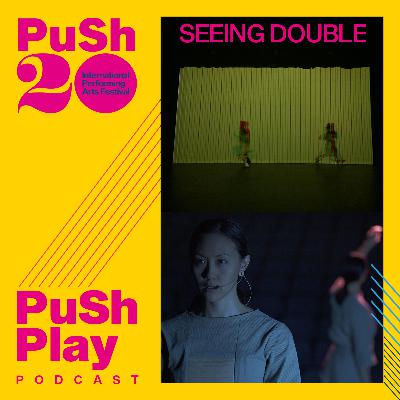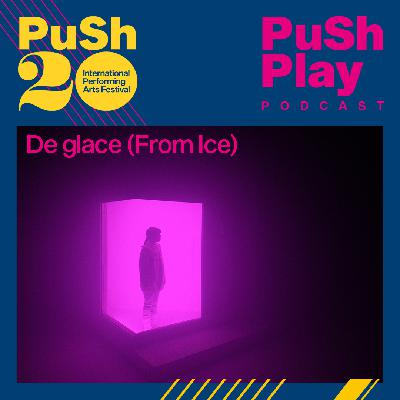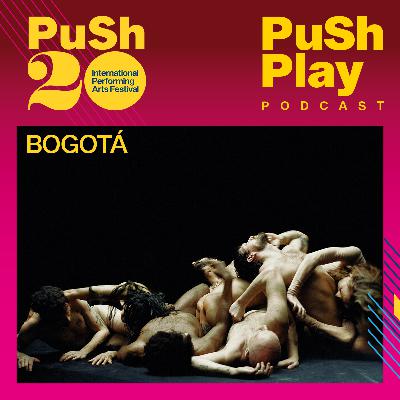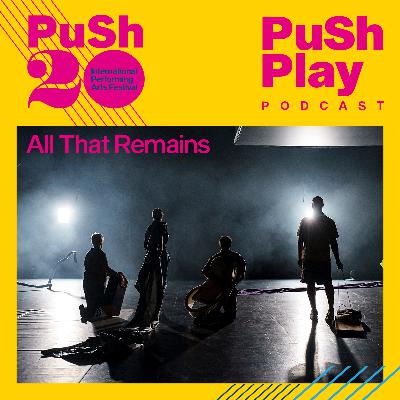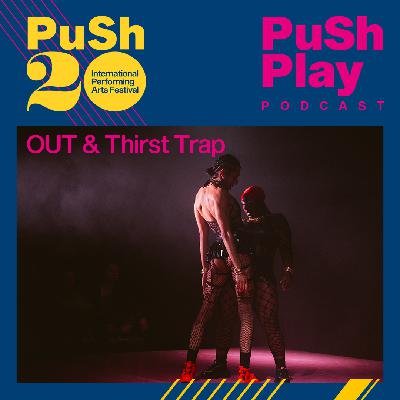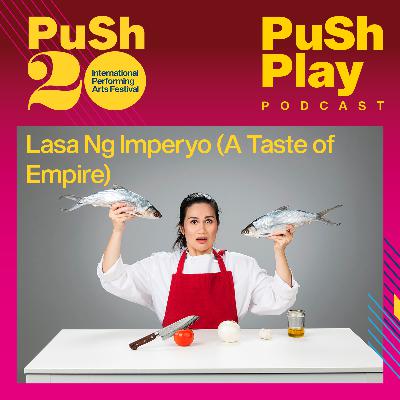Ep. 41 - Recovering the Pre-Colonial Past (History of Korean Western Theatre)
Description
Gabrielle Martin chats with Jaha Koo, the artist behind The History of Korean Western Theatre, which will be presented at the 2025 PuSh Festival. The History of Korean Western Theatre will be produced by CAMPO at The Roundhouse on January 23 and 24, 2025.
Show Notes
Gabrielle and Jaha discuss:
-
What is the role of drama and history in reclaiming the pre-colonial past?
-
Why hamartia, or tragic error, for the title of the trilogy of work?
-
What western or eastern influences do you perceive on your work? How do these aesthetics complement or come into tension with each other?
-
How do you see your practice evolving over the past eight years up to the current production?
-
What did it mean to become a father during the creation of this trilogy?
-
What creative risks and experiments are you embracing going forward? What's next for you?
-
What are the differences between audiences and responses between east Asia and elsewhere?
About Jaha Koo
Jaha Koo (he/him) is a South Korean theatre/performance maker, music composer and videographer. His artistic practice oscillates between multimedia and performance, encompassing his own music, video, text, and robotic objects.
His most recent project, the Hamartia Trilogy, includes Lolling and Rolling (2015), Cuckoo (2017) and The History of Korean Western Theatre (2020). The trilogy represents a long-term exploration of the political landscape, colonial history and cultural identity of East Asia. Thematically, it focuses on structural issues in Korean society and how the inescapable past tragically affects our lives today. Currently, Koo is working on a new creation, Haribo Kimchi, scheduled to premiere in 2024.
Koo majored in Theatre Studies (BFA, 2011) at Korea National University of Arts and earned a master's degree (MA, 2016) at DAS Theatre in Amsterdam.
Land Acknowledgement
This conversation was recorded on the unceded, stolen and ancestral territories of the Coast Salish Peoples: the xʷməθkʷəy̓əm (Musqueam), Skwxwú7mesh (Squamish) and Səl̓ílwətaɬ (Tsleil-Waututh), colonially known as Vancouver. Jaha joined the remote recording from Ghent, Belgium.
It is our duty to establish right relations with the people on whose territories we live and work, and with the land itself.
Show Transcript
Hello and welcome to Push Play, a Push Festival podcast featuring conversations with artists who are pushing boundaries and playing with form. I'm Gabrielle Martin, Push's Director of Programming, and today's episode highlights multimedia practice and finding one's artistic authenticity in relation to the Western theater canon.
I'm speaking with Jiaha Koo, the artist behind the history of Korean Western theater, which is being presented at the Push Festival January 23rd to 24th, 2025. This visionary documentary theater performance examines how the suppression of culture under Western assimilation has shaped Korean theater and by extension the national identity of South Korea.
Through a patchwork of personal narratives and historical analysis, it offers a deeply authentic perspective on the past and defiantly imagines a future free from cultural erasure. Jiaha Koo is a South Korean theater performance maker, music composer, and videographer.
His artistic practice oscillates between multimedia and performance, encompassing his own music, video, text, and robotic objects. Here is my conversation with Jiaha. In 2025, this will be the third time that you're going to come with your work to Vancouver.
The first time was with Kukwoo in 2020 and then Lalling and Rolling in 2023 and now 2025, the history of Korean Western theater. So it's just a really nice evolution for us to follow the evolution of your practice and just be in relationship with you and the themes that you're working with.
I'm very honored to present my Trilog works, Everything in Vancouver. So I'm very excited to meet audience to share my last piece of the Trilog, yes. And we're speaking about Vancouver and Vancouver is how this place is colonially known, but it is the stolen traditional and ancestral.
territories of the Coast Salish peoples, the Musqueam Squamish, and Tsleil -Waututh, and I'm a settler here, and part of my responsibility is ongoing learning about the colonial past and participating in a reclaiming of history and imagining of possible decolonial futures.
Today I'm really inspired by a podcast which is more like an intersection between documentary theater and a weaving of critical fabulation and historical documentation, a podcast called Marguerite La Traversé by Emily Monet, who was here at Porsche in 2023 with her work Oakenham.
And listening to this project has been very educational for me. It centers around Marguerite Du Plessy, an indigenous woman who was also a slave in the 1700s in Quebec. And this woman is the first enslaved person who took recourse to the justice system to have her freedom recognized in 1740.
And it's been really eye opening to realize the history, you know, in the 1700s at 90% of the slave population were indigenous people. And the other thing that's been critical fabulation, the need to the role of drama and imagining history as part of reclaiming the forgotten and erased histories of the past.
So for our listeners, I encourage you to check that out. And today, Zaha, where are you joining the conversation from? Now, I'm currently in Ghent, in Belgium, in the studio of Kampo, where I'm working with the last five years, I'm associate artist of Kampo, the production house in Ghent.
Yes. And this now is Friday evening, but I'm still in the studio. Yeah. Well, let's talk about what your work is in the studio or what you've been working on. So the history of Korean Western theater is the final part of your Hamartia trilogy.
And this word means tragic error in Greek. Why tragic error as a title for the trilogy and what makes these works a trilogy? I think this is really nice question to open up our conversation because it's really ironic and paradox why I made Hamartia trilogy as my title.
Actually, this is really related to the last piece, the history of Korean Western theater. Actually, I made the concept and plan of this trajectory in 2014. At the time, I already made the idea about rolling and rolling, and cuckoo, and the history of Korean music theater.
<p c

